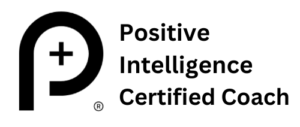 For a happy life, it’s important to cultivate an atmosphere of growth–the sense that we’re learning new things, getting stronger, forging new relationships, making things better, helping other people. Habits have a tremendous role to play in creating an atmosphere of growth, because they help us make consistent, reliable progress. ~ Gretchen Rubin, Better Than Before: Mastering the Habits of Our Everyday Lives
For a happy life, it’s important to cultivate an atmosphere of growth–the sense that we’re learning new things, getting stronger, forging new relationships, making things better, helping other people. Habits have a tremendous role to play in creating an atmosphere of growth, because they help us make consistent, reliable progress. ~ Gretchen Rubin, Better Than Before: Mastering the Habits of Our Everyday Lives
As I announced in last week’s post, I’m devoting July to rebooting my habits. When summer vacation unraveled my usual routine, I realized how closely tied my sense of well-being is to my habits.
What are your soul-feeding habits? Mine are meditation, writing, exercise, photography, and gardening.
My best, most mindful days are when I’ve done a little of all of these things. On those days, I go to bed feeling utterly fulfilled and happy. But in recent weeks life has shouldered its way in to my routine, leaving me scattered and ungrounded. It’s a common trend this time of year.
Gretchen Rubin’s quote above sums up why habits are so important to our well-being. Even though each of us has a different relationship to habits (some like the structure of habits, others find them confining), I think most of us can identify activities that make us feel better and those that make us feel worse.
There’s a concept in economics called “crowding out,” whereby “unproductive expenditures” crowd out “productive expenditures” (money spent on growth-enhancing infrastructure, for example). And no, this will not trail into a commentary on what’s happening in Greece this week.
Crowding out happens with habits as well — the more time we spend on “bad” (or unproductive) habits, the less room we have in our lives for those habits that feed our souls. The reverse is also true, of course. The more time we spend on habits that make us feel good, the less time we have for habits that leave us feeling depleted.
For those of us who would like to increase the percentage of our days (and lives) spent feeling good, how do we go about establishing our personal best habits? Not surprisingly, there’s no one-size-fits-all answer.
Gretchen gets to the heart of the question in Better Than Before by identifying four different tendency groups under which most people fall when it comes to habit motivation.
She refers to this framework as a habits Sorting Hat. (Anyone who uses Harry Potter references in their serious research is a friend of mine.)
Upholders meet both outer expectations and inner expectations. They don’t like letting people down, including themselves. I’m an upholder, which explains why I’m more likely to meet a challenge or goal if I announce it publicly (taking and posting a photo every single day of 2014 or completing my book draft that same year or training for a half marathon).
If it gets put on the schedule, an Upholder will make it happen. Having said that, Upholders’ obligation to meet their expectations for themselves gives them the strength to say no to other peoples’ demands/requests if it will interfere with their personal goals. Upholders have a strong instinct for self-preservation. Upholders may feel uneasy about breaking the rules, unless they have a strong justification to do so.
Questioners resist outer expectations, but meet inner expectations. They only respond to an expectation if they conclude that it’s logical to do so. They resist rules for rules’ sake. My husband’s nickname in high school was “Logical.” I understood Mark for the first time in my life after reading Gretchen’s description of Questioners.
For over twenty years, I’ve taken it personally when Mark questioned something I had to say. Nothing is ever taken on face value. It’s why he’s been such an excellent analyst over the course of his career. Questioners need to know why something needs to be done before doing it.
Mark and I both like to do research, but I now understand why he questions my (and others’ ) research so frequently. Perfect example: we got a new mailbox stand recently, a metal casing designed to slip over a 4X4 wooden post. I chose it online, noting to Mark that all the reviews specifically said to get a 4-foot-long wooden post for the project. I reiterated that piece of information over and over again, telling him that several different reviews said, “Make sure your post is only four feet long.” It didn’t make sense to Mark, though, since he thought that two feet went into the ground and that four more feet were needed for the mailbox to be at the right height. Based on his own logic, he got a longer post, ignoring what I had told him about the reviews.
Sure enough, after sinking the post into the concrete, he discovered that the wooden post wasn’t designed to fill the entire metal casing. If I hadn’t read about Questioners in Better Than Before, I would have been angry. Instead I was able to laugh at it as a perfect illustration of how Questioners operate. He figured out how to fix it on his own.
[Mark’s rebuttal: the directions in the box and the guy at Home Depot did not specify a 4-foot-long post, leading him to further question the reviews.]
Obligers meet outer expectations, but struggle to meet inner expectations. External accountability is the driving force in their motivation, making Obligers great team members, family members, and friends. They don’t like to let other people down. They need external accountability for everything, even things they want to do for themselves, because they always put their own needs last. They have trouble telling other people “no.”
Rebels give a thumbs down to all expectations, internal or external. They act from a sense of choice or freedom. They do everything on their own terms. This can be a great asset to society as Rebels provide a dissenting view that sometimes leads to more creative solutions, but can be frustrating for teammates (or parents of rebels!). Rebels often can’t even tell themselves what to do, which makes habit formation difficult for this group. Rebels, therefore, often resist habits. As one Rebel told Gretchen, “If I have to do something ‘every day,’ it guarantees I won’t do it. But if I take it one day at a time, and decide I’ll do it this time, then more often than not I end up with a streak.”
Most people are Questioners or Obligers. Upholders and Rebels, it turns out, are both tiny percentages of the populace.
Other personality traits to take into consideration when designing your habit strategies:
- Am I a lark or an owl (a morning person or a night person)?
- Am I a marathoner (who likes to work at a slow and steady clip), a sprinter (who likes quick bursts of intense effort), or a procrastinator (who hates deadlines but wastes time)?
- Am I an underbuyer or overbuyer? (“Underbuyers should remember that spending money to support a good habit is worthwhile; overbuyers should remember that mere acquisition isn’t enough to establish a good habit.”)
- Am I a simplicity lover or abundance lover? (Simplicity lovers like uncluttered work spaces, abundance lovers work better in spaces crammed with visual details).
- Am I a finisher or an opener? (Finishers love bringing a project to completion. Openers like to start lots of new things even when the old thing isn’t finished yet.)
- Am I a familiarity lover or novelty lover? (Novelty lovers may do better with a series of short-term activities–thirty-day challenges, for instance–instead of trying to create enduring, automatic habits.)
- Am I promotion focused or prevention-focused?
- Do I like to take small steps or big steps?
What are your tendencies? If you want to take Gretchen’s tendency test, you can check it out here. Share your results in the comments!
If you enjoyed today’s entry and are not yet a subscriber, sign up above for free delivery of new posts to your email inbox. (I promise to never share your information.) Social media likes and shares are always appreciated as well!


